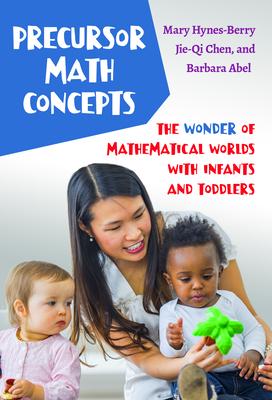This groundbreaking book looks at the development of mathematical thinking in infants and toddlers, with an emphasis on the earliest stage, from zero to three, when mathematical thinking and problem solving first emerge as natural instincts. The text explores the four precursor math concepts--attribute, comparison, change, and pattern--with an emphasis on how development occurs when it is nurtured by loving, knowledgeable others. The authors call this the CAIR principle: Closely Attend & Intentionally Respond. Sharing their stories of working with a wide range of zero to three caregivers and educators, the authors stress the difference between arithmetic skills and their definition of mathematics as "a logical way of thinking that allows for increasing precision." Each user-friendly chapter includes suggestions for highly effective practices that are embedded into everyday interactions and routines. Early care providers can use this resource to develop young children's interest in mathematics, ensuring that they are ready for the big ideas they will encounter in preschool.
Book Features:
- Provides two sections per chapter citing the most current research on infant and toddler cognitive development in relation to mathematical thinking.
- Offers concrete ways to help caregivers and professionals draw out the math that is all around us.
- Blends three domains of human development--social-emotional, physical, and cognitive.
- Examines the What, Who, and How of each precursor concept, with authentic anecdotes and "What the Research Says" sections.
- Offers a reader-friendly design that includes highlight boxes of authentic anecdotes, photos of infants and toddlers, recommendations for activities and books that support development of each precursor math concept, and reflective practice discussion points at the end of each chapter.
